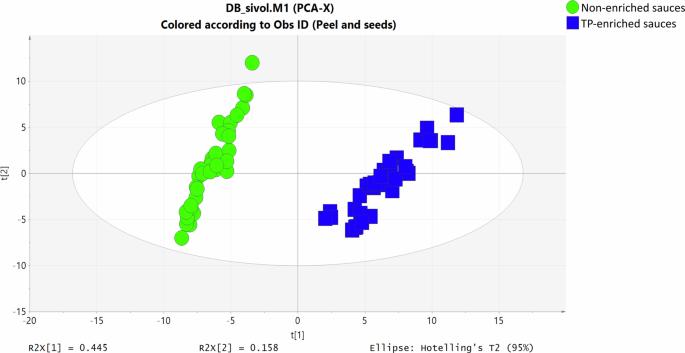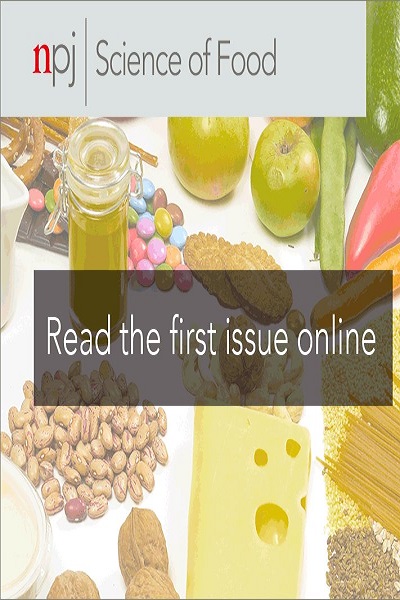烹饪对富含番茄渣调味汁中生物活性化合物影响的化学计量学研究。
IF 6.3
1区 农林科学
Q1 FOOD SCIENCE & TECHNOLOGY
引用次数: 0
摘要
番茄渣(TP)是一种未得到充分利用的生物活性化合物来源,在食品领域具有潜在的应用价值。我们设计了一个因子实验,比较美善品多功能料理机 (Thermomix®)、Roner® 和传统煎炸这三种烹饪技术,以制备富含或不富含 TP 的番茄酱,并采用两种温度和两种烹饪时间。对所获得的所有代谢物结果进行了多元分析。添加 TP 后,生物活性化合物的含量明显增加,尤其是酚类化合物。以烹饪技术、温度和时间为判别因素,建立了 OPLS-DA 模型。与烹饪温度和时间相比,烹饪技术对酚类化合物含量的影响更大。Thermomix® 能将番茄中的生物活性化合物释放到酱汁中,其程度与煎炸类似。事实证明,Roner® 能有效保留酱汁中的挥发性成分。美善品多功能料理机大大增加了生物活性化合物的含量,而 Roner® 则增加了挥发性化合物的含量。本文章由计算机程序翻译,如有差异,请以英文原文为准。


Chemometric study on the effect of cooking on bioactive compounds in tomato pomace enriched sauces
Tomato pomace (TP) is an underutilized source of bioactive compounds with potential application in the food sector. A factorial experiment was designed to compare three culinary techniques, Thermomix®, Roner®, and traditional pan-frying, for the preparation of tomato sauces, enriched or not with TP, applying two temperatures and two cooking times. A multivariate analysis was performed on all the results obtained for the metabolites. The addition of TP significantly increased the content of bioactive compounds, especially phenolic compounds. OPLS-DA models were generated using cooking technique, temperature, and time as discriminant factors. The cooking technique had a greater effect on the phenolic content than cooking temperature or time. Thermomix® released bioactive compounds from the tomato into the sauce to a similar extent as pan-frying. Roner® proved to be effective in preserving the volatile fraction of the sauce. The Thermomix® significantly increased the amount of bioactive compounds, while the Roner® increased the volatile compounds.
求助全文
通过发布文献求助,成功后即可免费获取论文全文。
去求助
来源期刊

NPJ Science of Food
FOOD SCIENCE & TECHNOLOGY-
CiteScore
7.50
自引率
1.60%
发文量
53
期刊介绍:
npj Science of Food is an online-only and open access journal publishes high-quality, high-impact papers related to food safety, security, integrated production, processing and packaging, the changes and interactions of food components, and the influence on health and wellness properties of food. The journal will support fundamental studies that advance the science of food beyond the classic focus on processing, thereby addressing basic inquiries around food from the public and industry. It will also support research that might result in innovation of technologies and products that are public-friendly while promoting the United Nations sustainable development goals.
 求助内容:
求助内容: 应助结果提醒方式:
应助结果提醒方式:


